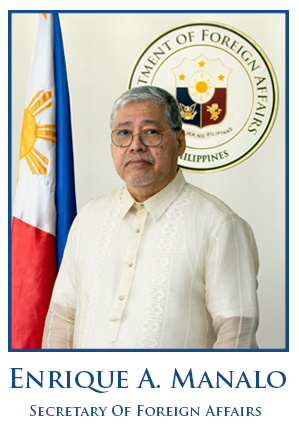The Network of Integrated Pinoys (Noi-P), a network of second generation Swiss-Filipino professionals based in Switzerland, and the Philippine Studies Network (PSN) of the University of Lucerne, successfully held on 17 October 2015 a conference on Philippine issues entitled, “Local and Global Responses to Development Issues and Disaster Management”.
The event was attended by more than fifty (50) people from all over Switzerland, with some coming from Germany, and members of the academic community and professionals who have done research work on the Philippines.
The conference was opened by Dr. Bettina Beer, a professor of anthropology from the University of Lucerne. Dr. Beer and her students regularly conduct annual research-immersion trips to the Philippines.
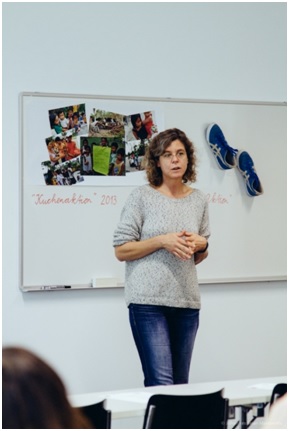
Dr. Bettina Beer welcomes the participants to the conference
The first discussion was presented by Filipina doctoral candidate from the Freie Universität Berlin, Ms. Rosa Cordillera Castillo, and delved into the “Bangsamaro Imaginary” and the need to foster peace in Muslim Mindanao.
Master’s degree and undergraduate students also shared their respective experiences during their research-immersion trips to the Philippines as part of the Philippine Studies program offered by the Department of Ethology of the University of Lucerne in cooperation with the Anthropology Department of the University of Zurich.
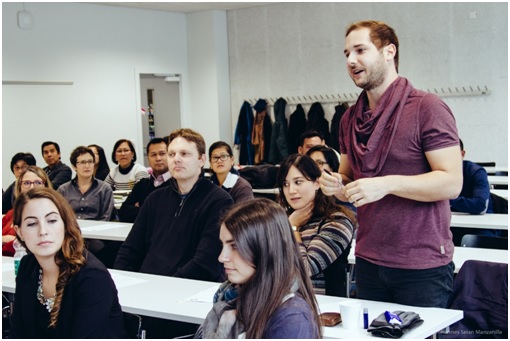
Participants include professionals, researchers, and graduate students.
One master’s degree student, Ms. Sara Dürr, discussed the local understanding of a Filipino community living in the vicinity of Vigan as a World Heritage Site.
An undergraduate student, Ms. Clara Koller, presented her fieldwork findings on the social relations of Filipino Sama-Bajau indigenous peoples in Totolan, Bohol.
Another student, Ms. Vanessa Müller, presented her thesis on how families of seafarers successfully cope with the long absence of their husbands/fathers by connecting more with their relatives and friends in their home communities.
Mr. Silvan Daeppen, a student from the University of Zurich, studied the cultural relations of Filipinos as seen through Filipino food.
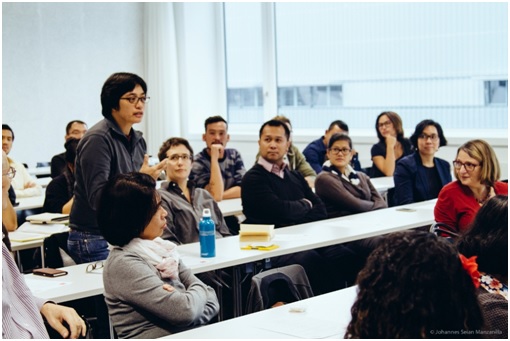
Filipina psychologist based in Zurich, Ms. Julie Palaganas (standing), gives inputs on Philippine society.
During the afternoon session, Noi-P presented examples of the quick response by the Filipino community in Switzerland when natural disaster struck the Philippines.
Mses. Lenny Bugayong and Michelle Käser and Mr. Johannes Manzanilla, all of Noi-P, discussed how various Filipino organizations across Switzerland have mobilized their members and friends and organized fund-raising events and extended assistance in the aftermath of the disaster brought about by Typhoon Haiyan (local name: Yolanda) in Central Philippines.
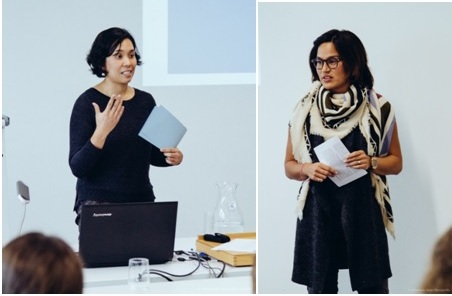
Noi-P members Ms. Lenny Bugayong (left) and Ms. Michelle Käser (right) giving their presentations on Disaster Response.
From the many questions raised and inputs made after each of the presentations, there was obviously a keen interest on the Philippines from among the participants. Attendees of the conference range from those who have done research work on topics about the Philippines, to those who have visited the Philippines a number of times, and to other nationals who have the desire to learn more about the Philippines.
Attendees present and who have not yet been to the Philippines also posed questions, out of curiosity to know more about aspects of Philippine culture and society.
The event provided an opportunity for “Philippinists” and those who are not yet familiar with the Philippines to exchange experiences and knowledge and to explore areas of mutual interests to them. It also offered a good opportunity to promote awareness of the Philippines among professionals and the academic community in Switzerland.
Since its inception in 2010, Noi-P has been organizing events to promote Philippine culture to Swiss and Swiss-Filipino audiences alike. The group is also involved in charity work and has served as reference point for various Swiss as well as international organizations wanting to know more about the Philippines and the Filipino community in Switzerland.
The Philippine Studies Network (PSN), on the other hand, is based at the Department of Ethnology of the University of Lucerne. Founded in 2012 by individuals from Lucerne, Berne, Zürich and Geneva, the network aims to encourage linkages within Switzerland and the rest of Europe among those who wish to explore and deepen studies relating to the Philippines. END
